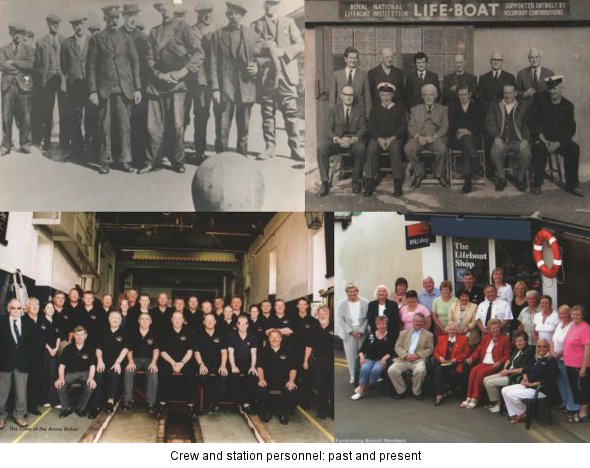Journal Volume 6 2010
One Hundred and Fifty Years of Lifeboating in North Wicklow (continued/2)
The People
Perhaps the great constant in the one hundred and fifty years of lifeboating on the North Wicklow coast has been the people: perhaps not surprising when one considers that throughout history, this has been the same. If one takes the history of any settlement from earliest times, the first settlers may have been farmers, living in ring forts, later inhabitants may have lived in or around the castle, even later around the ‘big house’ and so on, but life was essentially the same. People worked the land, albeit in different ways, made a livelihood and interacted with each other down through the centuries. So it is with a lifeboat community. Since the establishment of any lifeboat station, people step up to the line and volunteer to crew the boat, whether in 1857 to row the boat or in 2006 to man the radar, look after the engines or navigate. The spirit is still the same. The boat will be crewed and no call for help unanswered. Equally, the people who help keep the lifeboat running in other ways are the same as they were one hundred and fifty years ago. Running a lifeboat service costs money. Thanks to the generosity of the public, this money has always been there, but someone has to go out and raise it. The volunteers who continue to work tirelessly to raise the much needed funds to keep the service going are driven by the same spirit as their forbearers when Wicklow and Greystones lifeboat stations were established.

The Future
As with any organisation, change is constant. The RNLI exists to save lives at sea. To do so requires the Institution to keep abreast of changes not only of technological developments, but also of changes in how people use the sea. One hundred and fifty years ago, the sea provided a livelihood for many people, either transporting goods and people or fishing. Today, there are more leisure boats on the North Wicklow coast than commercial vessels. While the type of craft may have changed, the types of services have not. Vessels still run aground, foul their propellers, suffer engine or rigging failure, sometimes sink or lose people overboard. Who can tell what the lifeboat service will look like in the future, what kind of boats will be used or where lifeboat stations will be located. One thing we can be sure of is that the RNLI will continue to provide up to date boats, continue to train their crews and will operate lifeboat stations where there is a proven need.


